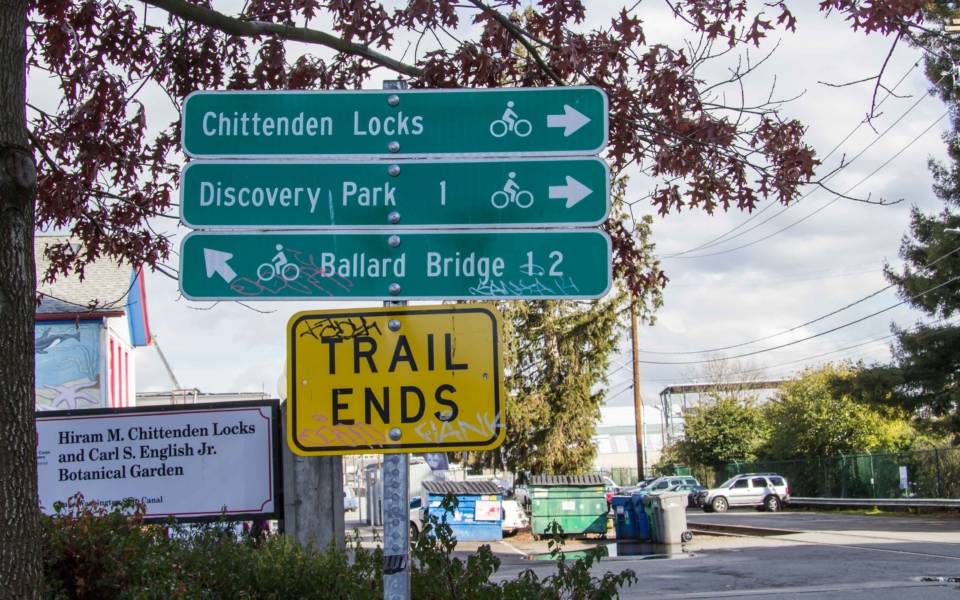Last week, the day after he announced he would not run for re-election, Mayor Ed Murray filed his monthly campaign finance report with the state.
The April report was not as brutal as one might expect. For most of the month that the report covered, Murray had been fighting off allegations that he molested several troubled teens in the in 1980s. While the allegations were enough to eventually drive the mayor out of the race, they were not enough to cut off the flow of money into Murray’s coffers. Over the month, he raised some $30,000. To put that in perspective, the candidate with the next largest pile of cash at the end of April was Nikkita Oliver, who had raised $34,630 total since launching her campaign in early March. Meanwhile, of the donors who had already contributed nearly $400,000 to Murray’s doomed campaign, only two people are listed as asking for refunds over the course of the month.
It’s a moot point at this point, of course. Murray’s campaign money is going to go somewhere other than a re-election campaign. Yet the campaign finance report presents an interesting case study into what drives people to pony up for candidates, and what makes them regret it. Curious about the impact, or lack thereof, of the allegations on Murray’s moneymaking machine, I gave one of the donors with buyer’s remorse a call. Josh Brower, a lawyer with the Veris Law Group, gave the Murray campaign $375 in October, then asked for its back in late April. Chatting with Brower, he had a surprisingly long list of grievances against the mayor who he’d cut a big check to a few months prior. But the sex abuse allegations were not among them.
“I believe that’s a personal matter. As a lawyer I don’t think that’s a matter that should be tried in the court of public opinion,” Brower says.
Rather, among the things that had Brower asking for his money back was an issue that by most accounts was a done deal, that being the missing link section of the Burke-Gilman Trail in Ballard. Back in February, Murray stood before a crowd in Ballard and announced that the city and local businesses had reached a compromise that would break the logjam that had long prevented the Burke-Gilman from completing the 1.5 mile connection between the Ballard Locks to the west and Bothell to the east. The trail would mostly run along Shilshole Avenue Northwest.
“About this time, next year, we will break ground and make this trail a reality,” Murray said at the time.
Brower says he was baffled by the announcement, given that he’s representing a group that opposes the plan.
“I’m the lead lawyer and no one in the city ever called me,” he says, adding that the lawsuit to block its construction is still active.
Brower says Murray was misleading with his remarks back in February—which were heralded by bike advocates with cheers and champagne toasts.
“Anyone who looks at the mayor’s press conference thinks the issue is settled,” Brower says. “It isn’t, but he said it was.”
In Murray’s defense, the city has gotten some big players in the Ballard business community to drop their opposition to the project, which alone is a major accomplishment. As Casey Jaywork wrote back when the announcement was made, people like Ballard Oil owner Warren Aakervik have long argued that bikes and industry “can’t co-exist” in the area. Now, Aakervik is on board. “All the stakeholders are committed to a trail that is safe for recreation and community and allows for predictable access for trucks using the corridor. … This is a win for everyone.” Councilmember Mike O’Brien, a longtime support of the Shilshole plan, pointed out that the link is still not a sure thing. “I gotta check myself a little bit, because it’s not done yet,” he told the Seattle Bike Blog. A close reading of Murray’s remarks also shows the mayor leaving himself some wiggle room, saying the agreement is “a framework” and “a path forward.” (A spokesman for the mayor declined to comment on Brower’s complaint).
The group Brower represents, Ballard Cycle Track, wants the city to avoid Shilshole and build a separated bike lane that runs down Leary and Market instead.
Just as before Murray’s February announcement, much of the argument hinges on the idea that bikes will get in the way of truck traffic, endangering bikers, profits, and blue-collar labor. But there’s also a racial equity dynamic to the appeal, Ballard Cycle Track arguing that the $14 million estimated price-tag for the project would be better spent in under-served neighborhoods rather than Ballard. “For me it’s an equity issue,” Urban League CEO Pamela Banks tells Seattle Weekly.
The bottom line is that opponents of the Shilshole bike path aren’t going down quietly. In late March, King 5 caught an exchange at City Hall about the Missing Link project that pretty much encapsulates the entire debate, in tone if not in content—i.e. two people screaming at each other.
On April 24, the coalition sent a letter to the city council asking it to block the plan. “We were not part of and do not support any claimed ‘resolution’ of this issue announced recently. Quite the contrary—there has been no resolution of this issue,” the group writes.
A final environmental impact statement on the proposed bike lane is expected some time later this month.
dperson@seattleweekly.com








